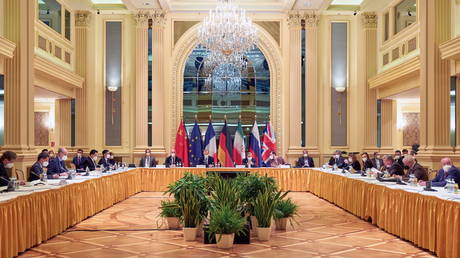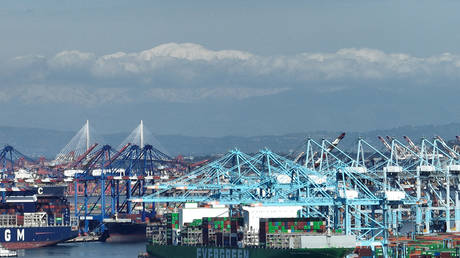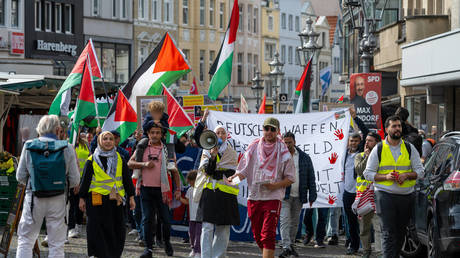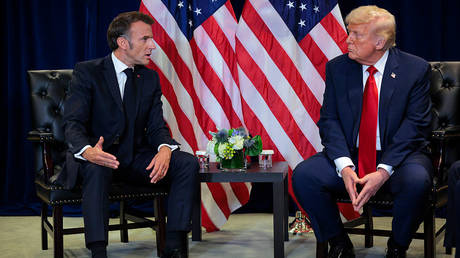
International talks to rescue the 2015 Iran nuclear deal have progressed and the original signatories are now clearer about how to get the US and Iran to comply, representatives of Russia and China have said.
Two weeks of indirect talks to revive the deal – known as the Joint Comprehensive Plan of Action (JCPOA) – have taken place between the US and Iran in Vienna, with other signatories to the accord acting as mediators.
“Today the Joint Commission of #JCPOA took note with satisfaction of the progress made in negotiations to restore the nuclear deal,” Mikhail Ulyanov, the Russian ambassador to the International Atomic Energy Agency (IAEA), said in a statement on Tuesday.
Tehran and Washington have been at loggerheads over the deal, with each party calling on the other to first make concessions before acting themselves, and the talks were launched as a renewed effort to see them both return to the agreement.
Ulyanov confirmed all delegations will now take a break from talks until early next week to allow them to “do homework and consult with the capitals.”
China’s envoy to the IAEA, Wang Qun, told reporters that “productive work” towards a final document had taken place, with the lifting of sanctions against Iran still the top priority.
Abbas Araqchi, Iran’s top nuclear negotiator, said the talks are moving forward but warned that Tehran could still pull out of the efforts to revive the JCPOA.
“The Iranian delegation will stop the talks whenever the process of negotiations leads to unreasonable demands, waste of time and irrational bargaining,” he was quoted as saying in state media.
It was also announced on Tuesday that a third expert working group has been created by the parties to address issues around the sequencing of practical steps towards a restoration of the JCPOA.
Two working groups had already been set up to look at both sanctions on Iran and the plan to ensure Tehran and Washington comply with the agreement.
In a statement, the EU’s political director Enrique Mora welcomed the new group, saying progress has been made so far in the discussions, but “much more hard work” is needed for the talks to be a success.
The JCPOA was signed in 2015 by China, France, Germany, Iran, Russia, the UK, US and the EU.
The deal provided Iran relief from Western sanctions in exchange for curbs on its nuclear program, including the centrifuges it is allowed to use, and the purity and quantity of enriched uranium it may stockpile.
In 2018, then-US president Donald Trump unilaterally pulled America out of the accord and launched a fresh “maximum pressure” campaign of sanctions on Iran.
In response, Iran began breaching its commitments under the terms of the accord, including enriching uranium beyond 3.67% purity.
Last week, Tehran announced it would enrich uranium to a record 60% purity in response to an alleged sabotage attack by Israel on its enrichment facility in Natanz.
Think your friends would be interested? Share this story!




